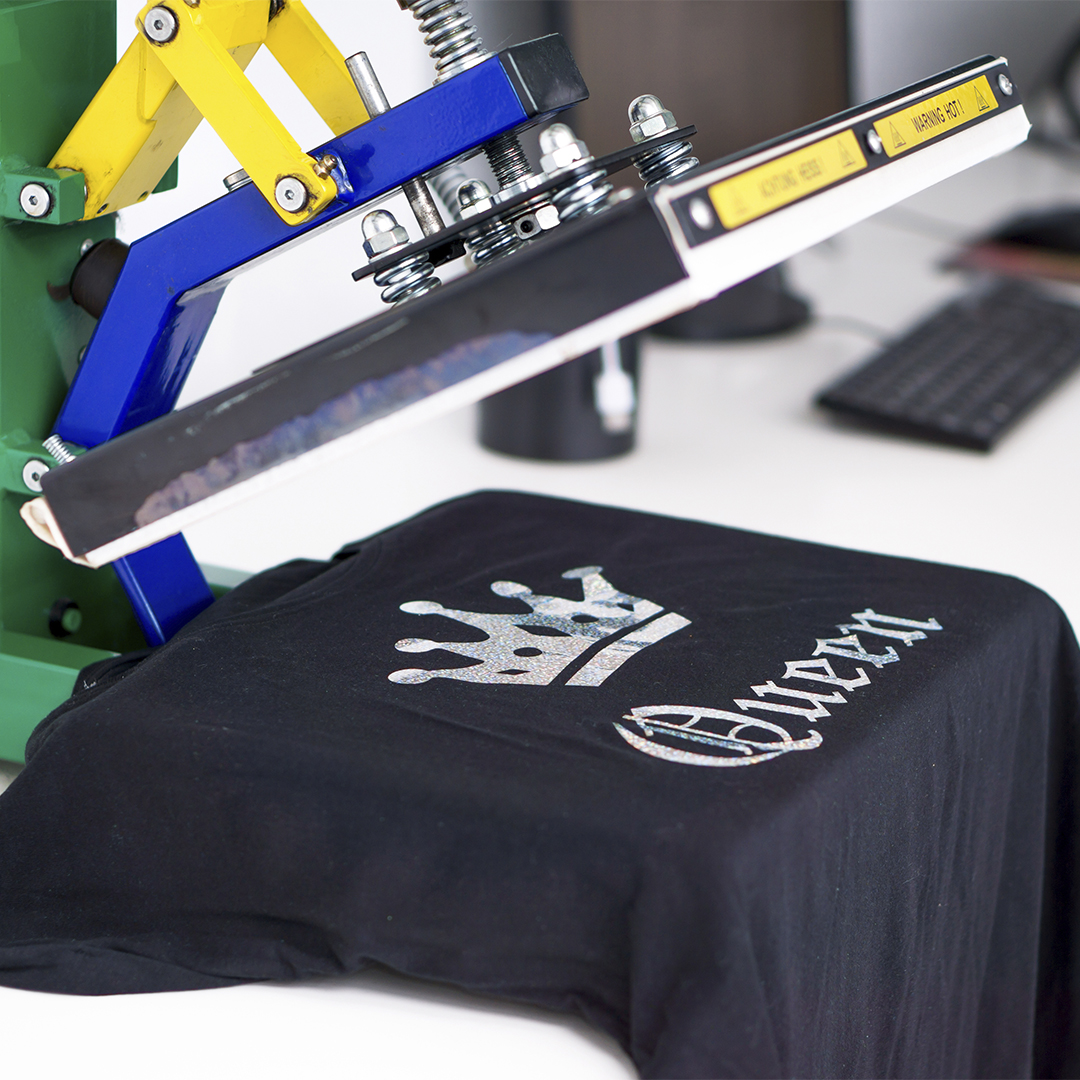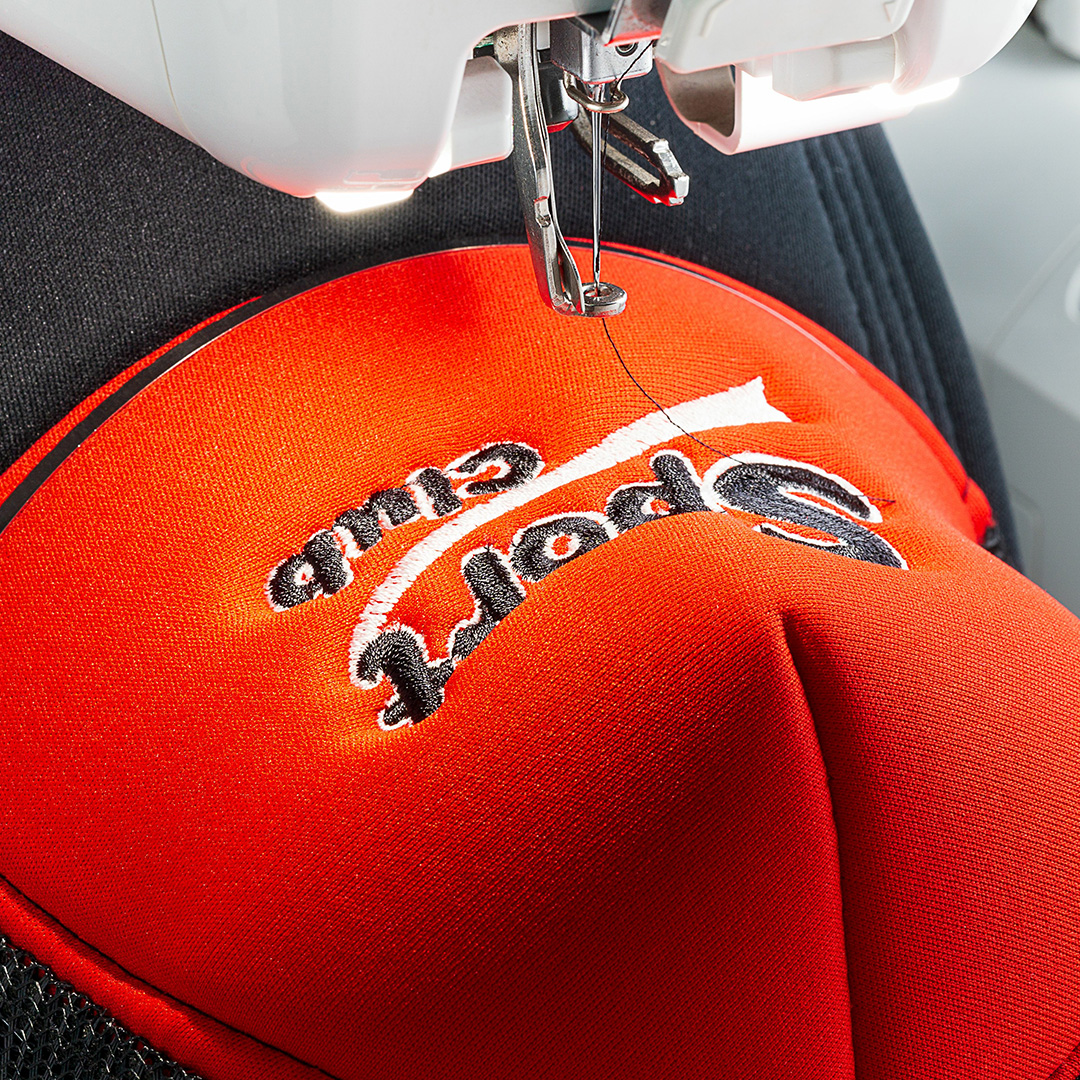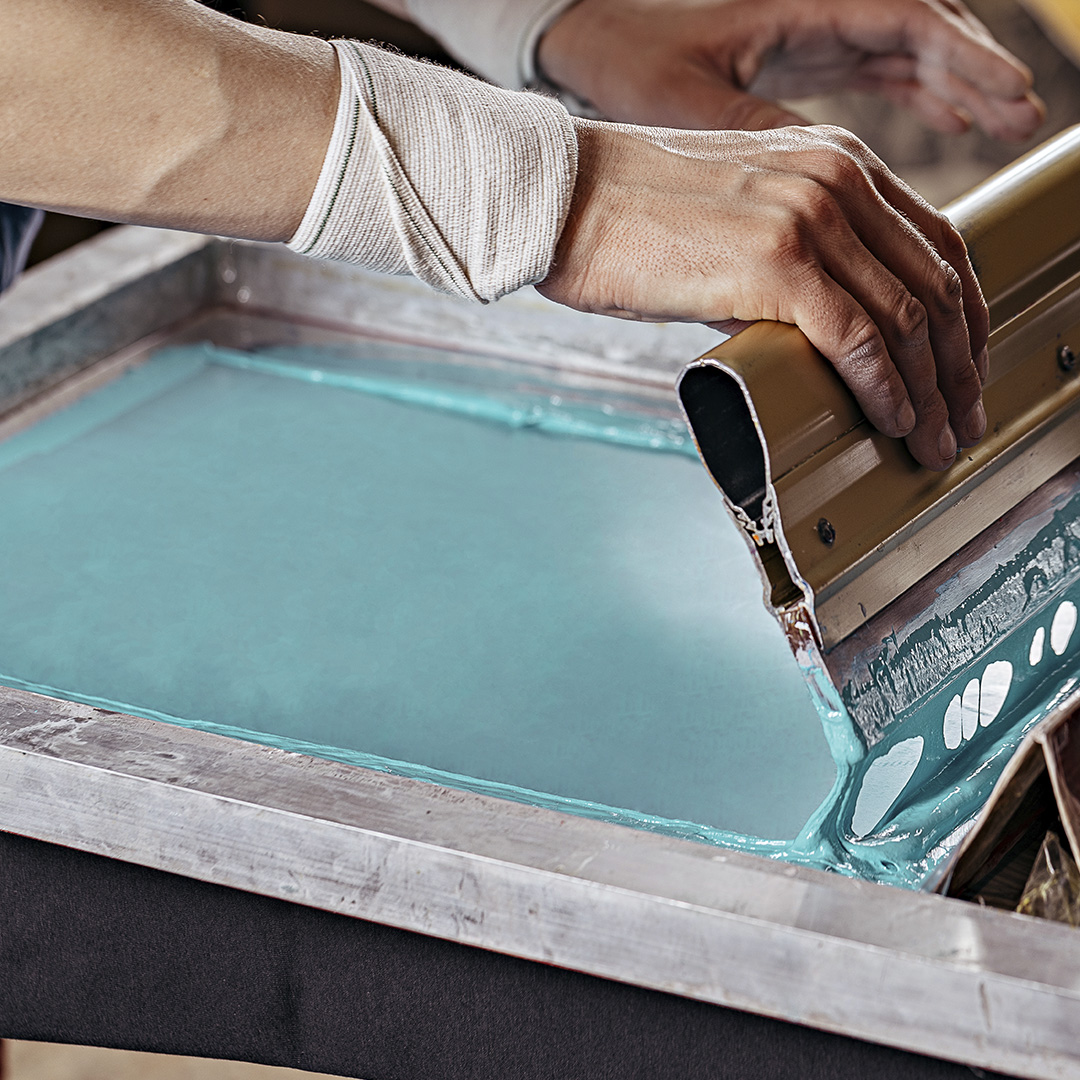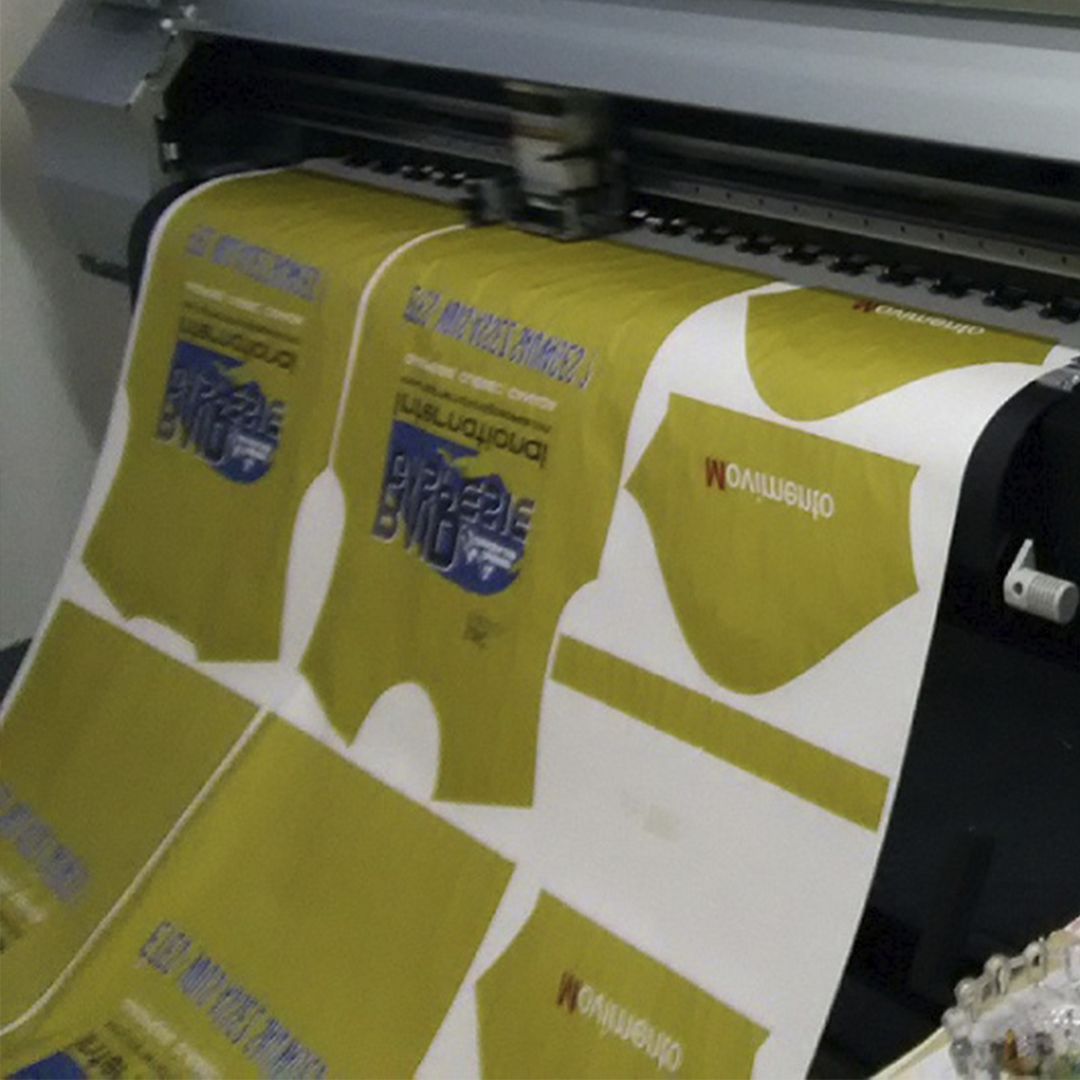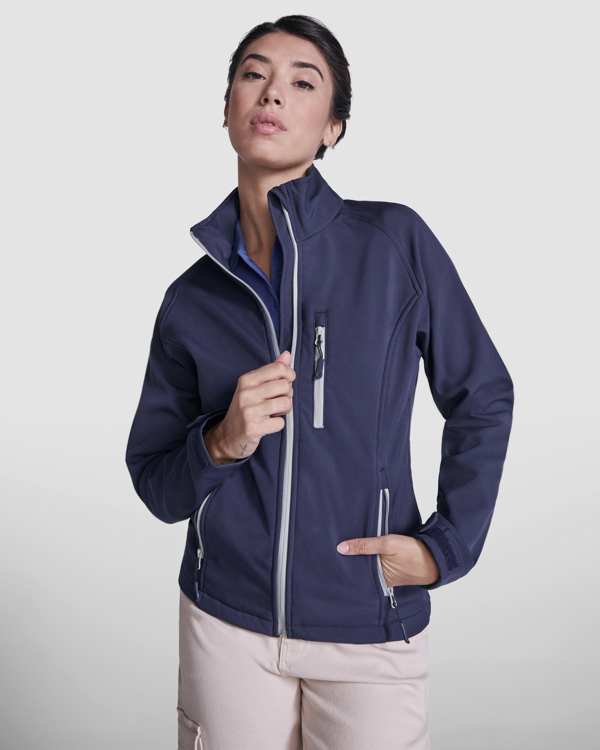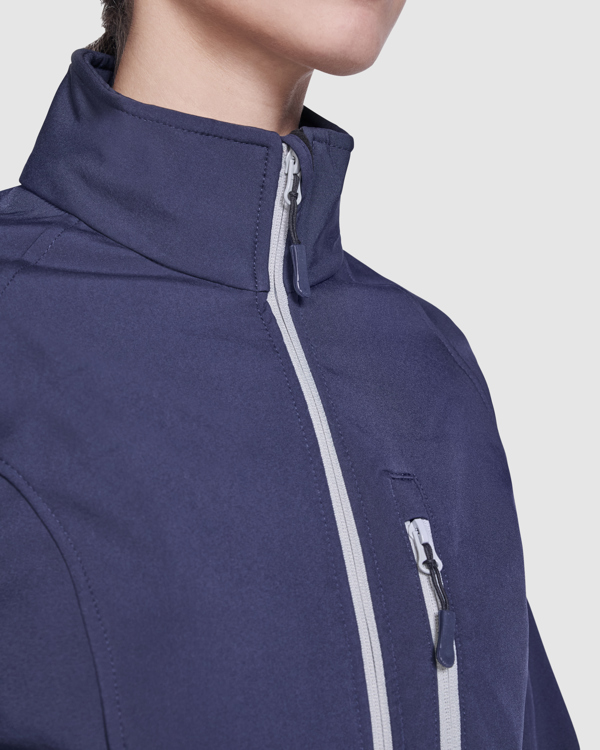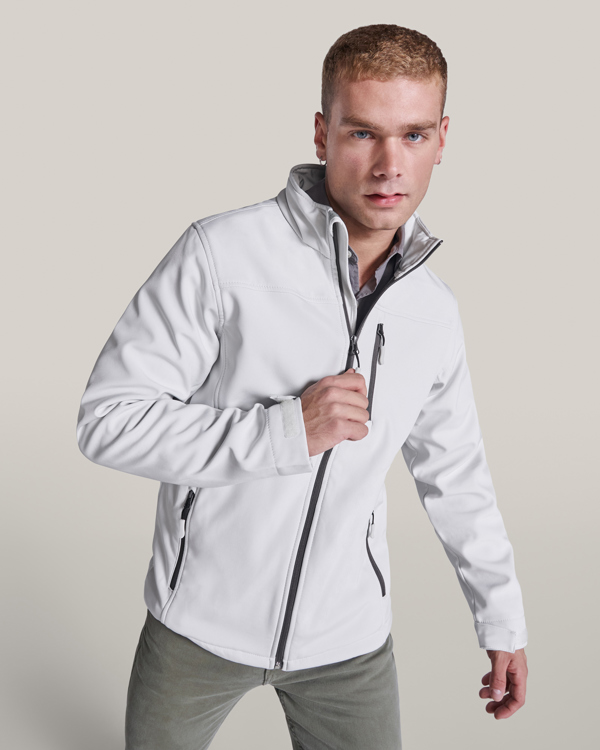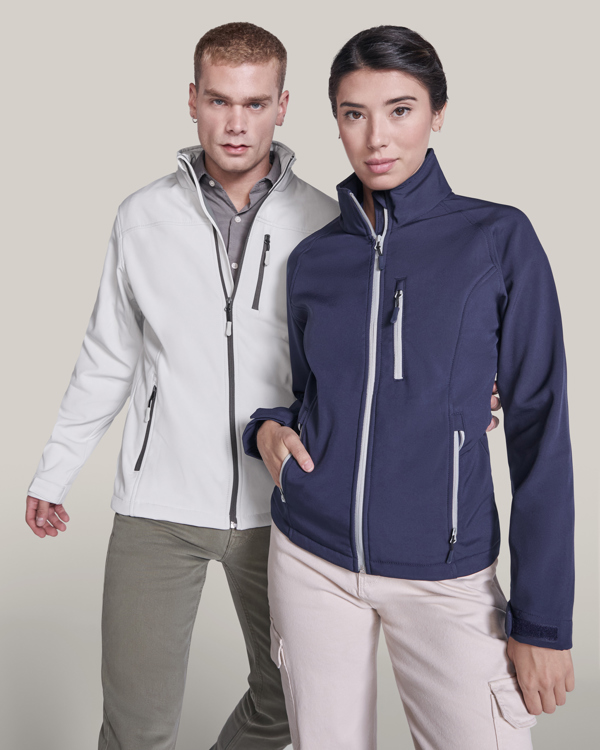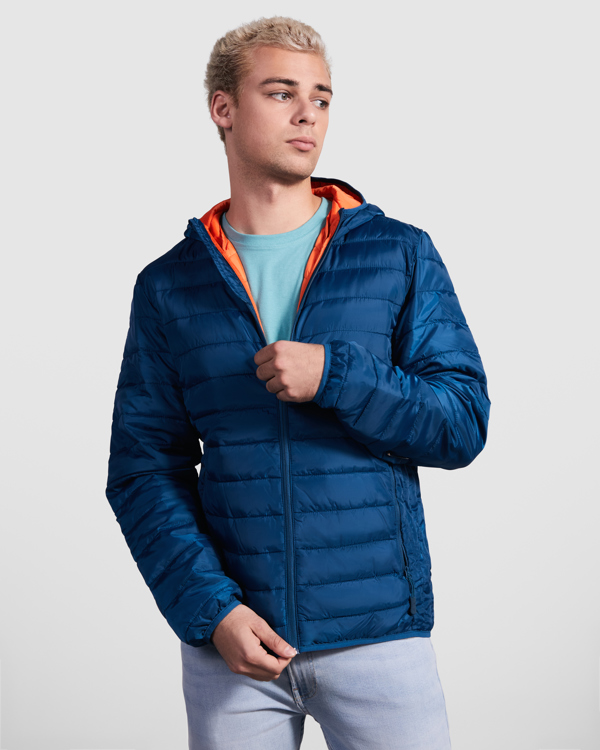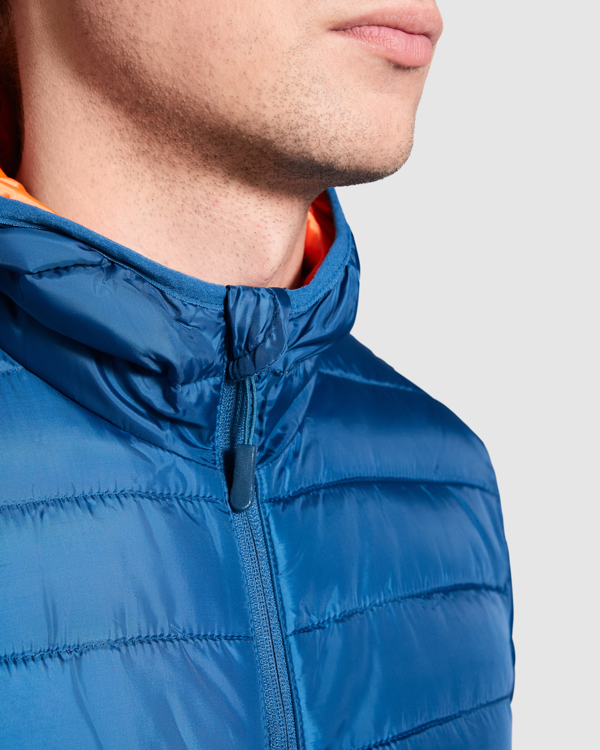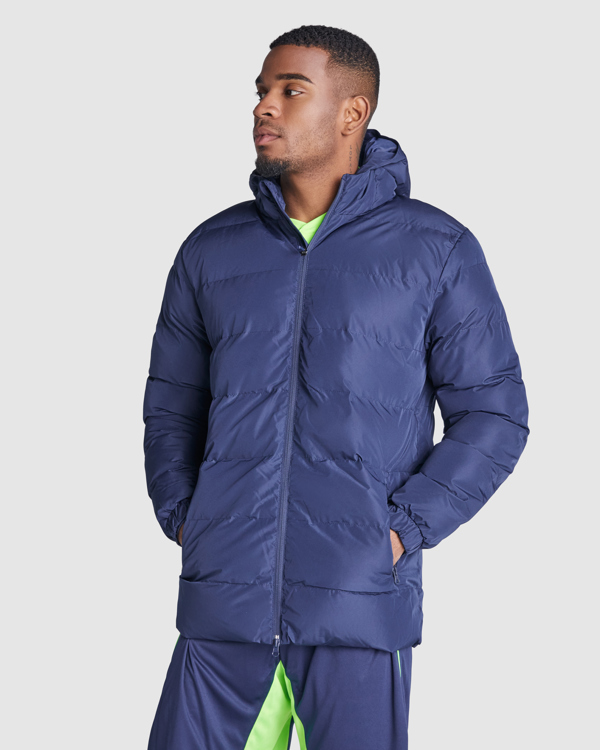The Maxson women's softshell jacket – the ultimate blend of style and performance for your outdoor adventures. Made from 270 g/m² polyester with a water repellent finish, this three-layered softshell jacket offers 8000 mm waterproof protection and 400 g/m² breathability. Its mechanical stretch woven fabric ensures unrestricted movement, while the micro fleece lining keeps you cozy and warm. Whether facing rain or staying active, this versatile jacket keeps you comfortable and dry. Convenient hand pockets with zippers offer secure storage for your essentials. The adjustable cuffs with hook and loop closure allow for a customisable fit. Elevate your outdoor experience with the Maxson jacket as its the ideal companion, combining functionality and style effortlessly. This jacket is designed with a fitted shape for a feminine look.
Size:
0 x 0 x 0
Composition: Mechanical stretch woven with waterproof, breathable membrane and water repellent finish of 100% Polyester, 270 g/m2, Bonding, Micro fleece of 100% Polyester
Weight: 496 grams
Units per box: 24 units
Box measurements: 38 x 44 x 56 (cm)
Silkscreen transfer
Silkscreen transfer is a technique similar to silkscreen printing. The difference is that instead of transferring the ink directly onto the product, it is first printed on transfer paper. This transfer paper is then applied to the product using a heat press. The advantage of this technique is that it supports four-color printing (screen printing only allows for spot colors) and achieves highly uniform results. It is suitable for small quantities of textile products. It is often used for gifts such as document holders, backpacks, non-woven bags, cork products, and soccer balls.
Embroidery
The traditional embroidery technique allows you to personalize different types of fabrics with a high-quality finish. This customization technique is also highly durable and relies primarily on embroidering the chosen design with different colored threads. The cost of this technique depends on the area in square centimeters to be embroidered. Embroidery is primarily used on caps, T-shirts, polo shirts, blankets, towels, and all types of textile products.
Screen Printing
Screen printing is one of the most widely used techniques, allowing printing of up to six spot colors depending on the product and providing long-lasting and reliable results. This technique is applied to smooth surfaces, achieving high-resolution images. Screen printing involves transferring the design to a screen (polyester or nylon mesh) coated with a photosensitive layer that reacts with ultraviolet light. This light hardens the areas not to be printed, allowing the design to bleed through. This technique is often used on textiles, plastics, wood, or aluminum items such as T-shirts, bags, jerry cans, notepads, backpacks, and caps.
Digital transfer
Digital transfer is ideal for digitally marking small quantities and without color limitations. It's used on products such as document holders, backpacks, non-woven bags, cork products, and soccer balls.
